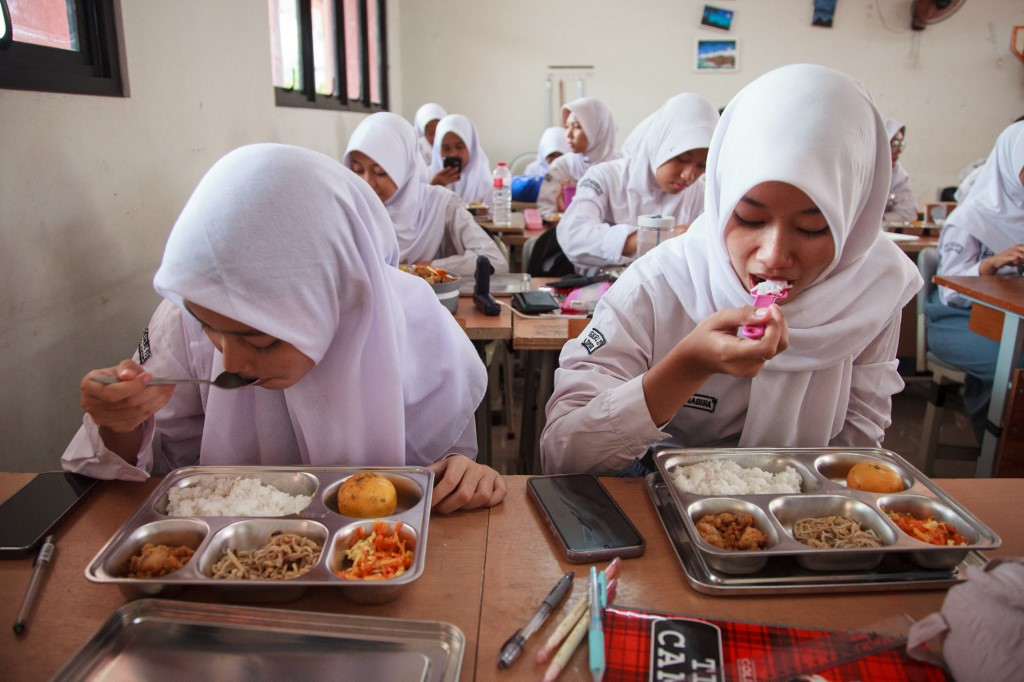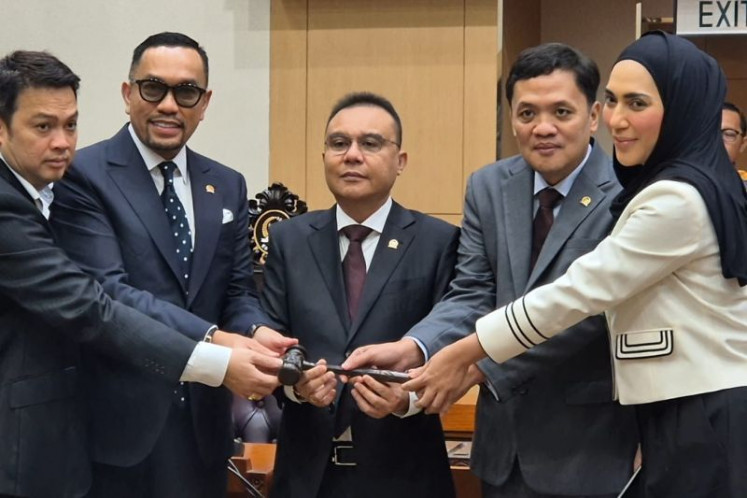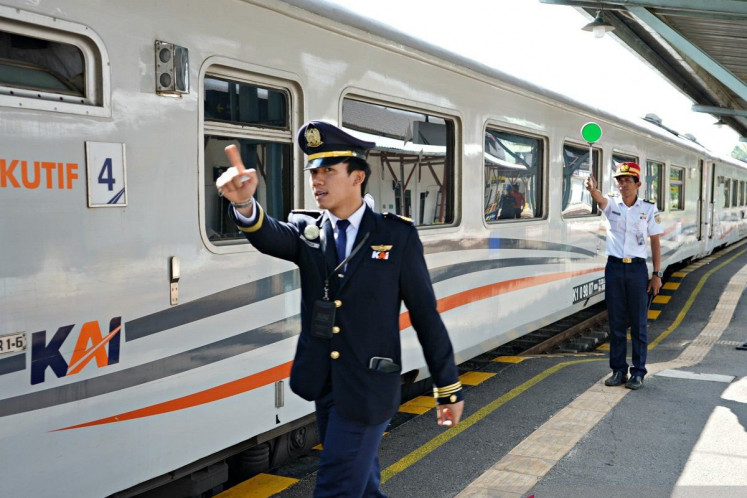Popular Reads
Top Results
Can't find what you're looking for?
View all search resultsPopular Reads
Top Results
Can't find what you're looking for?
View all search resultsPresident Prabowo's free meal program targeting 83 million people
Despite being the centrepiece of an election campaign that catapulted Prabowo to power last year, the scheme was rolled out with little fanfare on Monday, with no official launch and just 190 kitchens involved in preparing the first meals to school children and pregnant women in more than 20 provinces.
Change text size
Gift Premium Articles
to Anyone
P
resident Prabowo Subianto's ambitious multi-billion dollar programme to provide free meals to more than a quarter of his people was officially underway on Monday, officials said, with 570,000 mouths to feed on its opening day.
Despite being the centrepiece of an election campaign that catapulted Prabowo to power last year, the scheme was rolled out with little fanfare on Monday, with no official launch and just 190 kitchens involved in preparing the first meals to school children and pregnant women in more than 20 provinces.
The free meal plan will be a Herculean logistical effort when in full swing, with a target by 2029 of reaching 82.9 million of the country's 280 million population.
Prabowo's signature policy has been controversial, however, with previous estimates of its cost of $28 billion over five years triggering concern among some economists that it could dent Indonesia's hard-won reputation for fiscal prudence.
Prabowo has defended the programme and last month described it as strategic in countering child malnutrition and spurring growth in Indonesia's economy at regional level. It is estimated to cost Rp 71 trillion ($4.39 billion) in its first stage this year, providing meals for 15 million people.
At an elementary school in West Jakarta, staff carried food trays to class and students picked them up one by one, finding rice, fried chicken, fried tofu, beans, and an orange.
Hana Yohana, a parent of a first grader, said she hoped the programme continues as it made her morning routine easier.
"Thank God, this helps us. We normally had to work hard preparing food every morning, and now we don't," she said.
The government and military, who will help prepare and distribute the meals, have been running pilot programmes where they have handed out trays of food including rice, chicken and milk.
The number of meal recipients will gradually expand to 3 million by March and more throughout the year, according to Dedek Prayudi, a spokesperson for Prabowo's office.
Dedek said milk would be given but not every day. Indonesia has imported dairy cows from Australia to boost milk production.
Tan Shot Yen, a Jakarta-based nutritionist and doctor, said trials late last year were mostly conducted in urban centres and assessments were not made available to the public.
She said the government needed transparent monitoring and robust food safety management to prevent hazards and the inclusion of unhealthy processed products, such as instant noodles and sausages.
"I hope this programme is not just a temporary charitable effort to fulfil political promises," she said.
"To continue it for the long term, the government should focus not only on funding but also on empowering communities so (recipients) are not simply reliant on free meals once a day while struggling to find food for the other two meals," she said.











